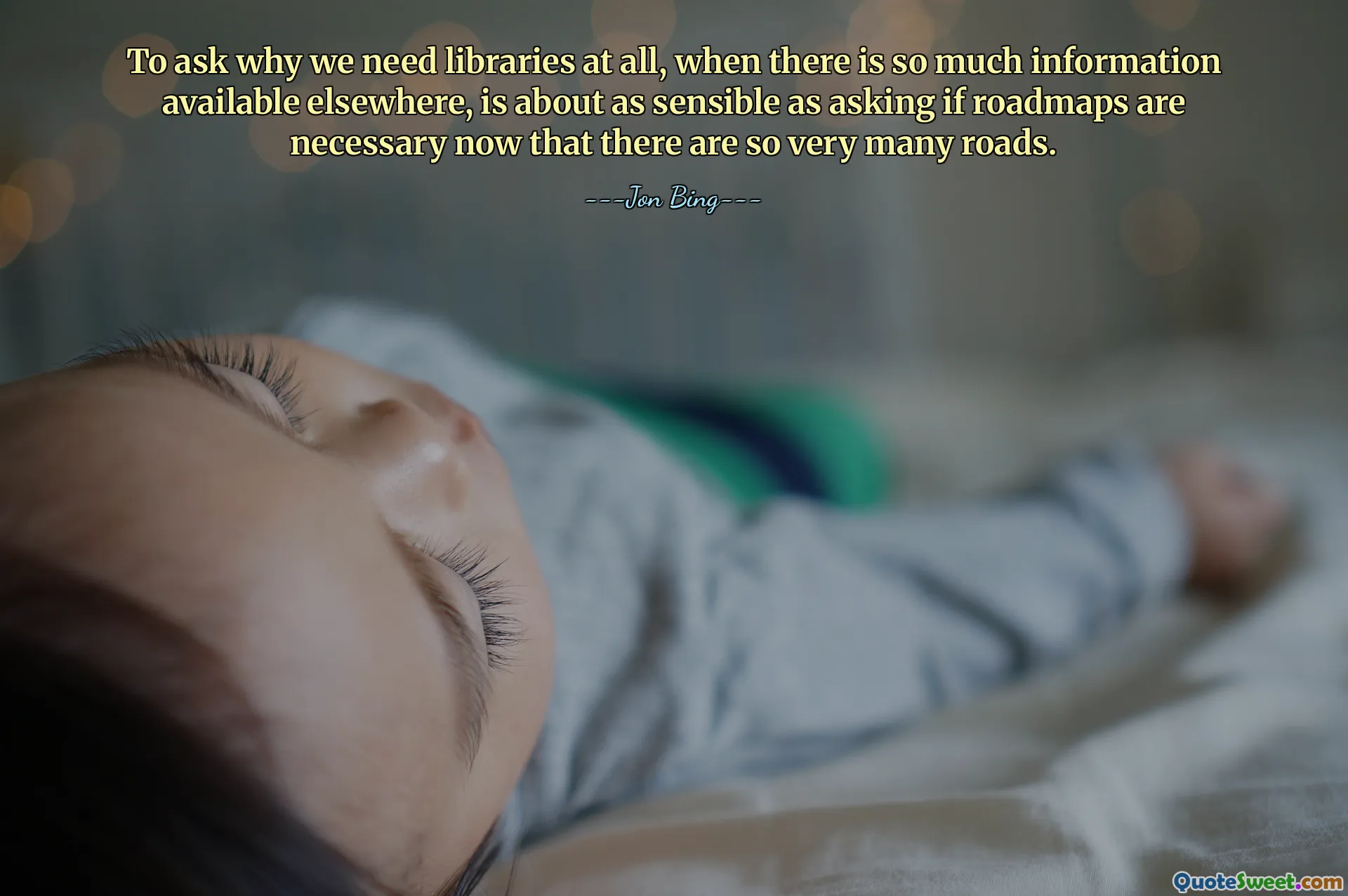
To ask why we need libraries at all, when there is so much information available elsewhere, is about as sensible as asking if roadmaps are necessary now that there are so very many roads.
This quote thoughtfully highlights the invaluable role that libraries continue to play in our access to knowledge, despite the proliferation of information sources in the digital age. It suggests that simply having a vast amount of information available online doesn't diminish the importance of organized, curated repositories like libraries. Much like roads facilitate travel between destinations regardless of the multitude of pathways, libraries serve as navigational tools guiding users through the vast landscape of information. They provide authoritative, researched, and authentic resources that might be difficult to verify or find among the less curated content on the internet. Libraries also offer guidance, expertise, and personalized assistance that a digital search cannot fully replicate. They serve as community hubs and preserve cultural and historical artifacts that digital platforms may overlook or fail to archive comprehensively. Moreover, libraries contribute to literacy, critical thinking, and equal access in society, ensuring that knowledge isn't just accessible to those with the latest devices or high-speed internet. The analogy encapsulates that geographic infrastructure, whether roads or libraries, remains essential because it structures our interaction with complexity. As information continues to expand exponentially, the need for trusted, curated, and accessible institutions like libraries only grows, highlighting their ongoing relevance past the era of digital omnipresence.










